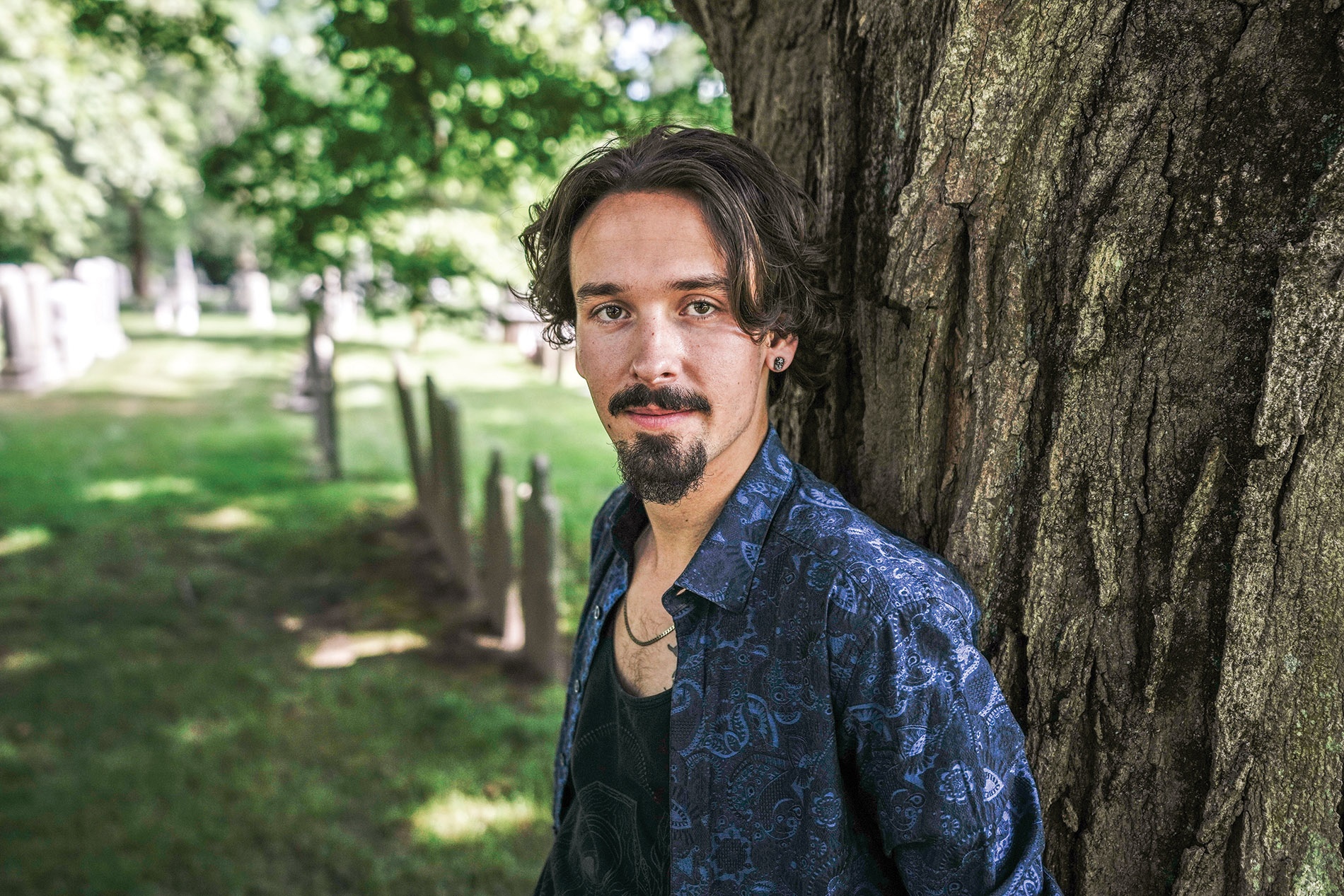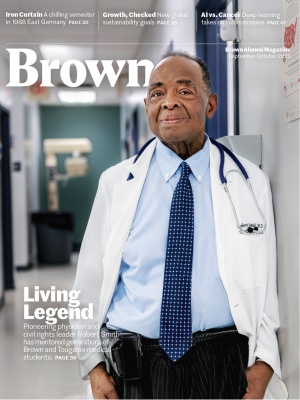When I stop and offer the buried strangers some of my attention, I find it interesting
to ask them for advice. They always seem to whisper the same thing... ‘Don’t
waste time.’
—Chip Gresalfi ’89
Locust Valley, N.Y.
I love this. I just visited my father’s grave for the first time. He died at the very beginning of the COVID shutdown, but not from COVID. He was at the end of a very long struggle with dementia. We were all so sad, but also were not able to be together. My siblings and I, most of our kids, and my brother’s two grandkids all live in separate cities/towns. We cried with Dad via phone and iPad. We cried together on Zoom. We were not able to have a funeral. We have and still do celebrate Dad’s life, but we didn’t have much closure. The cemetery felt a bit cold and statuesque, but I did love the stories emanating from the headstones. I love remembering Dad. Thank you for your story and reminder that cemeteries commemorate people who lived and remembering their lives and legacies.
—Dr. Patti Markham Risica
Associate Professor of Behavioral and Social Sciences and of Epidemiology at Brown
Love your article. We built a house in a village in Corsica adjacent to a beautiful small cemetery set at the foot of the mountain. At first, like you, I was not so sure about my feelings, but the setting is stunning and, of course, it is divinely peaceful. I’ve only brushed the subject with locals but the Corsicans apparently are not afraid of death. I will follow up on this one day.
Anyway, I agree with you that death is the last taboo which gradually changes for the better.
—Pascale Vaquette
Los Angeles
(mother of a Brown ’24 student)
Thank you for sharing the mental peace available while walking through a cemetery. The cemeteries in New England have fun clues to their history, which have been in situ on each time-stamped monument. When the Puritans landed, they brought a rich history with a harsher view of death. First, they posted ominous skulls declaring, “Here lies...” As witnessed on later monuments, the tone changed to “Here lies the body of.” Skulls would eventually be adorned with wings suggesting the deceased is elsewhere. Cherubs, urns, and willow trees also followed, representing increased hope and peace for the dead. When I stop and offer the buried strangers some of my attention, I find it interesting to ask them for advice. They always seem to whisper the same thing… “Don’t waste time.”
—Chip Gresalfi ’89
Locust Valley, N.Y.
I used to enjoy rambling about Swan Point Cemetery, where one of my favorite spots was the grave of a man who loved his house so much that he replicated it as his tombstone. There were other grander monuments, but this one was so very personal and “domestic.”
—Darrell Griffiths ’76 AM
Brooklyn, N.Y.
I enjoyed reading about Adrian Oteiza’s ’23 fascination with Swan Point Cemetery. My wife Linda grew up near the Swan Point Cemetery and beginning at age 8 or 9 spent afternoons there studying the grave markers and enjoying the peaceful surroundings. This led to a lifelong habit of visiting cemeteries whenever we travel. Initially, I was a reluctant partner in her enthusiasm. But I learned from her that viewing cemeteries adds a depth to travel that you can’t find anywhere else. Cemeteries are often full of art and history and frequently tell stories about what was important to the society and culture of the time and the lives of those buried there. Like Adrian Oteiza, we enjoy seeing where famous people are buried and gaining new understanding of whom buildings, streets and squares are named after. Visiting local cemeteries can tell you much about the lives of ordinary people as well. In Swan Point Cemetery you will see the lives lost in the 1918 Flu epidemic.Years from now, visitors will see the gravestones of those lives lost during the COVID pandemic and learn about our current history. Linda and I live on Badgers Island in Kittery, Maine, and in the historic cemetery next door to us is buried William Badger (May 26, 1752–February 22, 1830) the master shipbuilder who built more than 100 sailing vessels, including the first ships of the Continental Navy during the Revolution. Also buried there is a farming family whose 17th and 18th century women often died during childbirth and many children who never made it beyond the age of 2 or 3.
—Kenneth Cohen ’71
Kittery, Me.






